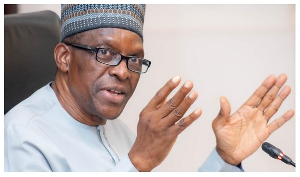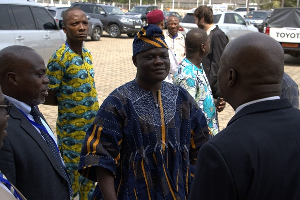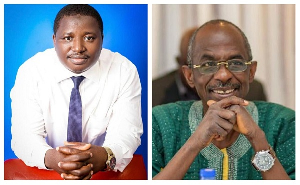The Speaker of the Ninth Parliament of the Fourth Republic of Ghana, Rt. Hon. Alban S. K. Bagbin, has reaffirmed Parliament’s critical role in shaping the nation’s democracy. In his formal address to Parliament, he emphasized that Ghana’s legislative arm remains the “seat and heartbeat” of democracy, ensuring representation, accountability, and governance oversight.
Acknowledging his re-election as Speaker, Bagbin expressed deep gratitude to the Members of Parliament (MPs) for entrusting him with another term. He extended congratulations to both returning and newly elected MPs, encouraging them to embrace their legislative responsibilities as national representatives rather than mere agents of political parties.
Parliament as the cornerstone of democracy
Bagbin stressed that Parliament is the only government institution where all communities in Ghana are equally represented, reinforcing the principles of diversity, unity, and equality. Unlike the Executive and Judiciary, which function as single-party and non-partisan institutions respectively, Parliament operates as a multiparty body. This, he said, defines Ghana’s democratic legitimacy.
“Without a multiparty Parliament, Ghana would cease to be a democracy,” he declared, urging MPs to recognize their broader duty to serve national interests rather than party agendas.
MPs must wear multiple hats
Addressing the role of MPs, the Speaker clarified a widespread misconception—that MPs are solely representatives of their political parties. He reminded them that they serve three primary constituencies:
1. Their political parties, which helped secure their election.
2. Their constituents, who directly voted them into office.
3. The Republic of Ghana, as sworn public officers obligated to uphold national interests.
Additionally, he encouraged MPs to develop their unique identities and expertise, citing past parliamentary leaders who made significant legislative contributions despite not being lawyers.
The new face of the 9th parliament
Speaker Bagbin noted that the composition of the 9th Parliament has undergone a radical shift compared to the historic 8th Parliament, which was evenly split between rival parties. The new Parliament, however, presents a working supermajority, with the previous Minority Party now holding the Majority.
He interpreted this shift as a clear mandate from the Ghanaian electorate for Parliament to deliver impactful governance. Bagbin urged the ruling party to abandon “business as usual” and focus on policy reforms that address public concerns, cautioning that the government is not operating on a “blank check”.
Legislative Priorities: A Call for Reform
Bagbin outlined several key legislative priorities expected to shape the 9th Parliament’s agenda, including:
• Constitutional and governance reforms, particularly in local government, political financing, and electoral processes.
• Stronger oversight of public resources, especially natural resource management and state enterprises.
• Accountability for international financial agreements to prevent economic mismanagement.
• Strengthening parliamentary committees, particularly those chaired by the Minority, to ensure checks and balances.
He also championed the use of Private Member’s Bills, allowing MPs to initiate legislation that directly impacts their constituencies. This, he said, would leave a lasting legacy in Ghanaian politics.
Speaker’s commitment to impartiality
Bagbin reaffirmed his commitment to nonpartisan leadership, emphasizing that his role as Speaker is independent of party interests. He cited the Speaker’s Oath, which mandates him to act without fear or favor. His impartiality, he added, is essential in fostering fair deliberations and meaningful legislative progress.
A new era for Ghana’s parliament
Closing his address, Speaker Bagbin urged MPs to take their parliamentary duties seriously, as their actions will shape the future of Ghanaian democracy. He reminded them that each Parliament is an opportunity to make history, warning that failure to serve effectively could mean losing their seats in the next election.
“The electorate has placed a heavy weight of hope on this Parliament. We must not fail them,” he concluded.
With a supermajority government and a Speaker committed to parliamentary independence, the 9th Parliament is poised to reshape Ghana’s governance landscape. Whether it delivers on its promises will depend on how effectively MPs navigate partisan interests and national priorities.
General News of Wednesday, 29 January 2025
Source: Joyce Asiedu, Contributor

















